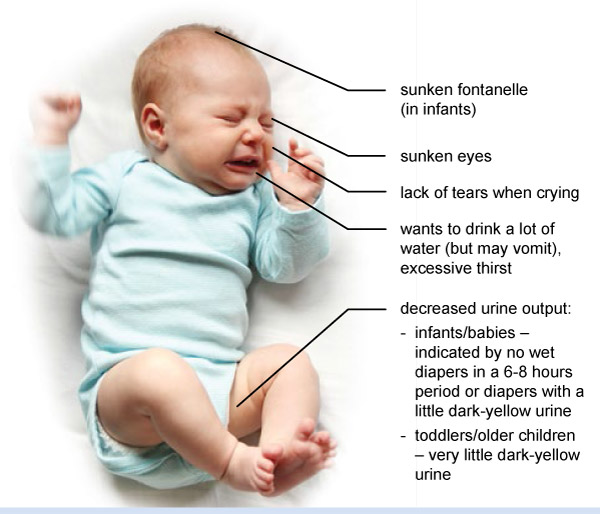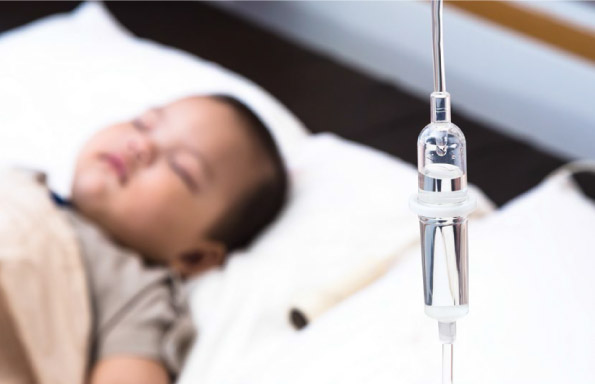Dehydration is what happens when one’s body lacks sufficient fluids.
It is a potentially dangerous condition, especially in the case of infants and small children. As parents, you should exercise extra caution to ensure that your child does not suffer from dehydration and its ill-effects.
The Dangers of Dehydration
As parents, you must be mindful of the fact that severe dehydration can lead to death. This is caused by the sudden and copious loss of water and electrolytes from your child’s body. Due to their smaller size, infants and young children are particularly vulnerable to any sudden losses.
The World Health Organisation (WHO) has data that shows dehydration especially when caused by diarrhoea) to be one of the biggest causes of deaths in children around the world – this figure is estimated at around 2.2 million children worldwide.
What Causes Dehydration
The most common causes include:
- vomiting
- diarrhoea
- fever
- illness (possibly a viral infection that results in decreased ability to drink or eat)
- prolonged exposure to hot environments
Many common viral or bacterial infection can cause these conditions, such as rotavirus, norovirus, adenovirus, Salmonella, or Escherichia coli, just to name a few. There have even been cases of parasitic infections (e.g. giardiasis, caused by Giardia lamblia) which causes diarrhoea and subsequently dehydration. However, you should be constantly on the alert and take immediate action if your child shows signs of dehydration.
When to Be Concerned
As parents, you should be keenly aware of your child’s physical condition at all times, especially when he is suffering from any of the conditions mentioned (e.g. vomiting or diarrhoea). There will be some dehydration if he exhibits any of the following signs:
- rapid breathing
- increased heartrate
- restlessness and/or irritability
- lethargy/weakness
- poor skin turgor (pinching a fold of skin at the abdomen results in it returning slowly to normal)

What You Should Do
If your child has mild to moderate dehydration, you should ensure that he gets rehydrated as soon as possible. You can pick up oral rehydration solutions (ORS) from any pharmacy, and it should be used for rehydration as it contains just the proper combination of sodium and glucose to help the intestines absorb what the body needs.
He should also be fed with milk as usual and porridge if aged more than six months.
If your child has suffered from some dehydration, you should ensure that he takes more fluids to replace what he has lost.
The amount of ORS and/or milk to provide your child with within the first 4-6 hours after signs of some dehydration :

For children below one-year-old, you can administer the ORS using either an oral syringe or a teaspoon. Older children (above one-year-old) can be given ORS in a cup – just let him take frequent sips over a period of time.
If your child vomits during this time, wait for about 10 minutes before you continue to rehydrate him – give him the ORS more slowly this time (e.g. one teaspoon or sip every 2 minutes instead of every minute). Give small and frequent feeds to ensure the dehydration is corrected. An intravenous line may be needed in hospital if oral rehydration fails.
The danger signs
If your child exhibits any combination of the following, please get him immediate medical care:
- Sunken eyes
- More pronounced skin turgor (pinching a fold of skin results in it returning very slowly to normal)
- Vomiting – either if his vomit is greenish in colour or if he vomits several times within 24 hours
- High fever – above 39.4°C
- The lining of his mouth/tongue is covered by dry or sticky mucous membranes
- He is very lethargic and is less active than normal (especially if he has difficulty waking up from sleep or lapses into unconsciousness)
- Infants/babies – very irritable (cries a lot for no apparent reason and/or is fussy to the point of being inconsolable).






Comments